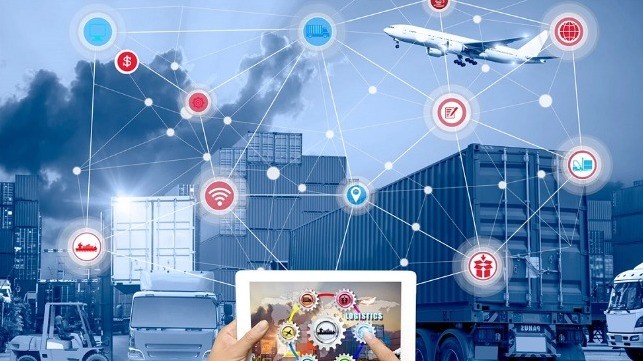Review: Maritime Informatics - Additional Perspectives & Applications
Following the successful publication of the world’s first academic reference book on the newly-coined field of maritime informatics, the editorial team of professors Mikael Lind (Chalmers University of Technology, Sweden and Research Institutes of Sweden), Michalis Michaelidies (Cyprus University of Technology), and Richard Watson (University of Georgia), along with Robert Ward (former Secretary-General of the International Hydrographic Organization) have gathered another team of authors to produce a follow-on book.
For those not familiar with their first book, informatics analyzes the representation, processing, and communication of information in natural and engineered systems putting the behavior of, and interaction between, people and organizations operating within a digital data ecosystem at the core. Maritime informatics is informatics applied specifically to the maritime sector and explores the opportunities for data sharing and analytics in the maritime industry through digitalization and the opportunities that it provides to improve the quality of maritime decision making, sustainability and operating efficiency.
This latest book is intended to send a strong signal to all involved in the maritime transportation sector that maritime informatics is a collaborative and much needed mechanism to accelerate digital transformation and efficiency. It does so by inviting leading experts to write about the current situation, trends and opportunities across the full range of topics of concern to those involved in the maritime transportation chain.
The editors have united an impressive group of researchers and academics with leading practitioners. A total of 43 contributors (32 practitioners and 11 researchers) from 14 countries provide six essays covering several additional and important foundational topics not fully explored in the first book.
In particular, they examine supply chains in support of global emergencies, recycling resources and the circular economy, future ports acting as multidimensional hubs, the standardization of data, and the characteristics of data sharing platforms - all from the perspective of recent practical experience.
The chapter on supply chains in support of global emergencies highlights the complexity of supply chain operations, especially where multi-modal transport is at play, and where dynamic decision making is required for the routing of goods in transit and in the best interest of people and the planet - such as the supply of humanitarian aid or vaccines. Using the latest internet of things (IoT) technologies is seen as the way to provide data from various systems of records as to the whereabouts, status and conditions of goods and assets. Data sharing that combines all the available data then improves common situational awareness dramatically and enables efficient, green and humanitarian decision making and facilitates the smooth and seamless movement of goods.
Another chapter centers on the idea of ports as multi-dimensional hubs. The authors envision the ports of the future as incorporating the functions of a transport hub, an information hub, and an energy hub. How the ports of today can become the multidimensional hubs of tomorrow is covered, highlighting both the existing mechanisms in place and the role of maritime informatics as an enabler.
Two chapters are devoted to data standardization. In the first, the work and the significance of the IMO Reference Data Model to harmonize the most important standards for ship clearance is described. The authors note that the IMO reference data model is already extending into other areas of ship-port data exchanges and it is now increasingly seen as a tool to coordinate development of new electronic data exchange standards for ship operations.
The role of industry-based standards organizations in the digital transformation is also covered, using the DCSA (Digital Container Shipping Association) as a principal example. The DCSA has implemented digital data standards in the container shipping industry to raise levels of transparency and thereby improve reliability, efficiency, and customer experience.
The final chapter looks at the types of IT infrastructure and digital platforms required to enable successful and mutually beneficial data sharing throughout maritime supply chains, such as the Global Shipping Business Network (GSBN), the Digital Transport and Logistics Forum (DTLF) concept, INTTRA, and the World Economic Forum platform for Trade and Global Economic Interdependence. The TradeLens digital data sharing platform is used as a case study to identify the key actors involved and the technical set-up, the benefits and challenges for the individual types of actors, and the overall potential and future challenges.
For more information or publishers information and availability, visit www.maritimeinformatics.org.
PUBLISHED MAY 25, 2021 6:15 PM BY THE MARITIME EXECUTIVE
The opinions expressed herein are the author's and not necessarily those of The Maritime Executive.








Comments (0)